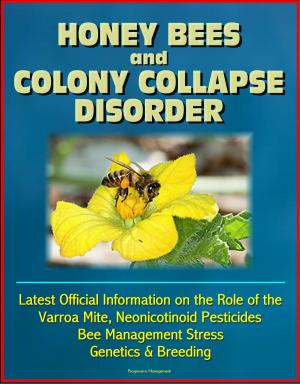Nationalist Movements and Transnational Jihad: Fractionalization of the Chechen Separatist Movement - Russian Invasion of Chechnya, Jihadist Influence on Muslim Struggles Including Hamas in Palestine
Nonfiction, History, Asian, Russia, Social & Cultural Studies, Political Science| Author: | Progressive Management | ISBN: | 9780463188910 |
| Publisher: | Progressive Management | Publication: | June 7, 2018 |
| Imprint: | Smashwords Edition | Language: | English |
| Author: | Progressive Management |
| ISBN: | 9780463188910 |
| Publisher: | Progressive Management |
| Publication: | June 7, 2018 |
| Imprint: | Smashwords Edition |
| Language: | English |
This excellent 2018 report has been professionally converted for accurate flowing-text e-book format reproduction.
By focusing on the case of Chechnya, this study analyzes how transnational jihadists gain influence in nationalist movements. Chechens united to support the separatist cause during the 1994 Russian invasion of Chechnya. However, after the first Russo-Chechen War, the new Chechen president was unable to unite the Chechen elites, and rebel field commanders sought patronage elsewhere, particularly with groups connected to transnational jihadist networks. This study argues that the fractionalization of the Chechen separatist movement allowed transnational jihadists to gain influence in local politics and finds that strong, centralized political parties or leaders can curb jihadist influence, as seen in the case of Hamas in Palestine. In a broader view, this research analyzes why transnational jihadists are able to co-opt various local struggles in the Muslim world, which we see in places such as Syria and Iraq today. Identifying the conditions that allow transnational jihadists to co-opt a local conflict points to policy considerations for how to prevent the spread of global jihad in future conflict zones.
Since the war against the Soviets in Afghanistan, the mobilization of Muslim foreign fighters is a persistent factor in many of the local conflicts and wars in the Islamic World.1 In Syria during the Arab Spring, secular protests quickly took on sectarian tones and radical Islamist groups became major players in the conflict to oust Bashar al-Assad. In Chechnya, the separatist movement increased in religious rhetoric and rebel elites embraced alliances with transnational jihadist networks. Nationalist movements in the Islamic world such as these have sought assistance and alliances with transnational jihadist groups. However, other movements have discouraged the involvement of foreign fighters. What causes nationalist struggles to be co-opted by transnational jihadist groups?
This research paper focuses primarily on the case of the Chechen nationalist movement from its inception to the start of the second Russo-Chechen War in 1999. In Chechnya, local rebel elites welcomed Muslim foreign fighters, who increased in influence during the inter-war years (1997-1999) and led Russia to represent the second war as a "war on terror."
FRAMING THE CHECHEN INDEPENDENCE MOVEMENT: ISLAM AS AN OPPOSITIONAL IDENTITY * PERIOD OF INCREASING ISLAMIZATION: FROM THE FIRST TO SECOND RUSSO-CHECHEN WAR * AL-QAEDA AND HAMAS: A LOVE-HATE RELATIONSHIP?
CONTENTS * I. INTRODUCTION * A. LITERATURE REVIEW * 1. Foreign Fighter Literature * 2. Civil War Literature * 3. Movement Fragmentation * 4. Social Mobilization Literature: Framing * 5. Literature Review Conclusion * B. HYPOTHESES * 1. Hypothesis 1: Resource Mobilization * 2. Hypothesis 2: Movement Structure * 3. Hypothesis 3: Collective Identity and Framing * C. THESIS OUTLINE * II. FRAMING THE CHECHEN INDEPENDENCE MOVEMENT: ISLAM AS AN OPPOSITIONAL IDENTITY * A. WHO ARE THE CHECHENS? * 1. Ethnic Identity * 2. Religious Identity * B. CHECHNYA UNDER THE SOVIETS * C. THE CHECHEN EXPERIENCE OR THE NORTH CAUCASUS EXPERIENCE? * D. GLASNOST AND THE RISE OF CHECHEN IDENTITY * E. VAINAKH IDENTITY * F. CHECHEN SEPARATISM * G. CHECHEN NATIONALIST FRAMING: 300 YEARS OF GENOCIDE * H. SYMBOLS OF CHECHEN NATIONALISM * I. ROLE OF RELIGION IN CHECHEN NATIONALISM * J. ANTI-DUDAEV OPPOSITION
This excellent 2018 report has been professionally converted for accurate flowing-text e-book format reproduction.
By focusing on the case of Chechnya, this study analyzes how transnational jihadists gain influence in nationalist movements. Chechens united to support the separatist cause during the 1994 Russian invasion of Chechnya. However, after the first Russo-Chechen War, the new Chechen president was unable to unite the Chechen elites, and rebel field commanders sought patronage elsewhere, particularly with groups connected to transnational jihadist networks. This study argues that the fractionalization of the Chechen separatist movement allowed transnational jihadists to gain influence in local politics and finds that strong, centralized political parties or leaders can curb jihadist influence, as seen in the case of Hamas in Palestine. In a broader view, this research analyzes why transnational jihadists are able to co-opt various local struggles in the Muslim world, which we see in places such as Syria and Iraq today. Identifying the conditions that allow transnational jihadists to co-opt a local conflict points to policy considerations for how to prevent the spread of global jihad in future conflict zones.
Since the war against the Soviets in Afghanistan, the mobilization of Muslim foreign fighters is a persistent factor in many of the local conflicts and wars in the Islamic World.1 In Syria during the Arab Spring, secular protests quickly took on sectarian tones and radical Islamist groups became major players in the conflict to oust Bashar al-Assad. In Chechnya, the separatist movement increased in religious rhetoric and rebel elites embraced alliances with transnational jihadist networks. Nationalist movements in the Islamic world such as these have sought assistance and alliances with transnational jihadist groups. However, other movements have discouraged the involvement of foreign fighters. What causes nationalist struggles to be co-opted by transnational jihadist groups?
This research paper focuses primarily on the case of the Chechen nationalist movement from its inception to the start of the second Russo-Chechen War in 1999. In Chechnya, local rebel elites welcomed Muslim foreign fighters, who increased in influence during the inter-war years (1997-1999) and led Russia to represent the second war as a "war on terror."
FRAMING THE CHECHEN INDEPENDENCE MOVEMENT: ISLAM AS AN OPPOSITIONAL IDENTITY * PERIOD OF INCREASING ISLAMIZATION: FROM THE FIRST TO SECOND RUSSO-CHECHEN WAR * AL-QAEDA AND HAMAS: A LOVE-HATE RELATIONSHIP?
CONTENTS * I. INTRODUCTION * A. LITERATURE REVIEW * 1. Foreign Fighter Literature * 2. Civil War Literature * 3. Movement Fragmentation * 4. Social Mobilization Literature: Framing * 5. Literature Review Conclusion * B. HYPOTHESES * 1. Hypothesis 1: Resource Mobilization * 2. Hypothesis 2: Movement Structure * 3. Hypothesis 3: Collective Identity and Framing * C. THESIS OUTLINE * II. FRAMING THE CHECHEN INDEPENDENCE MOVEMENT: ISLAM AS AN OPPOSITIONAL IDENTITY * A. WHO ARE THE CHECHENS? * 1. Ethnic Identity * 2. Religious Identity * B. CHECHNYA UNDER THE SOVIETS * C. THE CHECHEN EXPERIENCE OR THE NORTH CAUCASUS EXPERIENCE? * D. GLASNOST AND THE RISE OF CHECHEN IDENTITY * E. VAINAKH IDENTITY * F. CHECHEN SEPARATISM * G. CHECHEN NATIONALIST FRAMING: 300 YEARS OF GENOCIDE * H. SYMBOLS OF CHECHEN NATIONALISM * I. ROLE OF RELIGION IN CHECHEN NATIONALISM * J. ANTI-DUDAEV OPPOSITION















